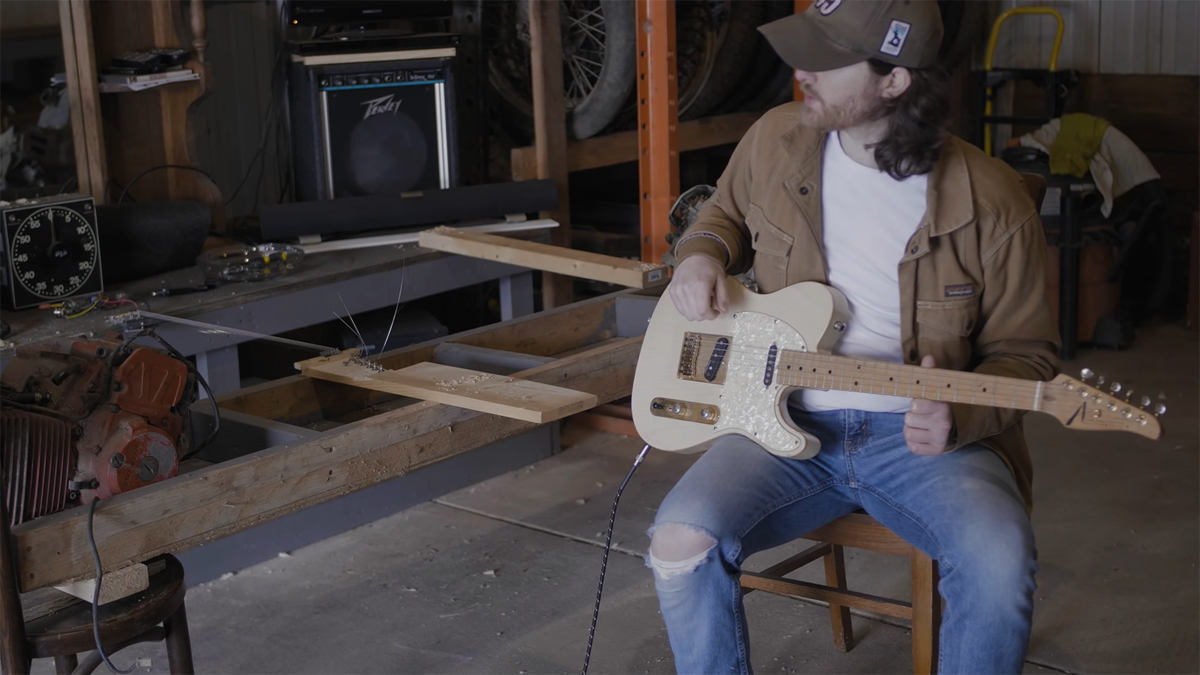
Where does an electric guitar’s tone come from? It’s a question that has many answers, depending on who you ask. While some subscribe to the 'tone is all in the hands' mantra, there are others that point to the instrument’s fundamental build differences – those who believe tone is in the body, neck, strings, fretboard, and so on.
It’s a debate that’s been hotly contested seemingly since the dawn of time itself, but now YouTuber Jim Lill has arrived to find out the truth. In a new 12-minute video, Lill put an electric guitar under the microscope to find out, once and for all, where its tone emanates from.
“I’ve read and heard all sorts of ways that every single part on the guitar can make a difference in the sound, but I don’t know if any of that’s true,” Lill commented before embarking on his quest.
His first port of call was to contact professional guitar builders to find out the five biggest factors that made a difference in a guitar’s amplified sound. The results, as you can imagine, covered almost everything on the instrument: wood, pickups, weight, bridge saddles – heck, even finish got a mention.
Armed with this knowledge – and a $100 build-your-own “Partscaster” that he compared to his Tom Anderson Tele – Lill began chipping away at the list, first exploring the impact pickups had on tone.
Lill’s surgical approach to testing his tone covered all bases. Loose and tight neck joints were explored, as were differing saddle materials, headstock shapes and bridge plates.
However, the breakthrough came when he dissected the impact pickup height had on his tone. To test his developing theory, Lill fashioned a guitar from a piece of two-by-four wood, which he equipped with a Seymour Duncan Vintage Stack single-coil.
All the latest guitar news, interviews, lessons, reviews, deals and more, direct to your inbox!
When compared to his Tom Anderson – which had an identical pickup/pickup height setup – the results were remarkably similar. So similar, in fact, that Lill went on to run one last experiment with one final “guitar."

We put “guitar” in quote marks because, well, it isn’t even a guitar: just six strings suspended between a bench and shelf, weighed down by old Honda car engines. Still, the basics were the same: scale length, pickup height, pickup angle, saddles, bridge plate and electronics.
Once again, the differences in tone between the Tom Anderson Tele and the Air Guitar were almost indistinguishable. Does that mean tone is all in the pickup height? It seems a stretch, but we can't fault Lill's methodology, so perhaps it might just be the case.
As you can probably tell, it’s a fairly comprehensive tonal deep-dive – one you can watch in its entirety in the video above.
Despite the rigorous testing, it’s apparently only the beginning for Lill. Yes, there’s another video on the way that will further unpack his findings, and you’ll be able to find it on Jim Lill’s YouTube channel when it comes out.

Matt is the GuitarWorld.com News Editor, and has been writing and editing for the site for five years. He has a Masters in the guitar, a degree in history, and has spent the last 19 years playing everything from blues and jazz to indie and pop. During his GW career, he’s interviewed Peter Frampton, Zakk Wylde, Tosin Abasi, Matteo Mancuso and more, and has profiled the CEOs of Guitar Center and Fender.
When he’s not combining his passion for writing and music during his day job, Matt performs with indie rock duo Esme Emerson, and has previously opened for the likes of Ed Sheeran, Keane, Japanese House and Good Neighbours.
